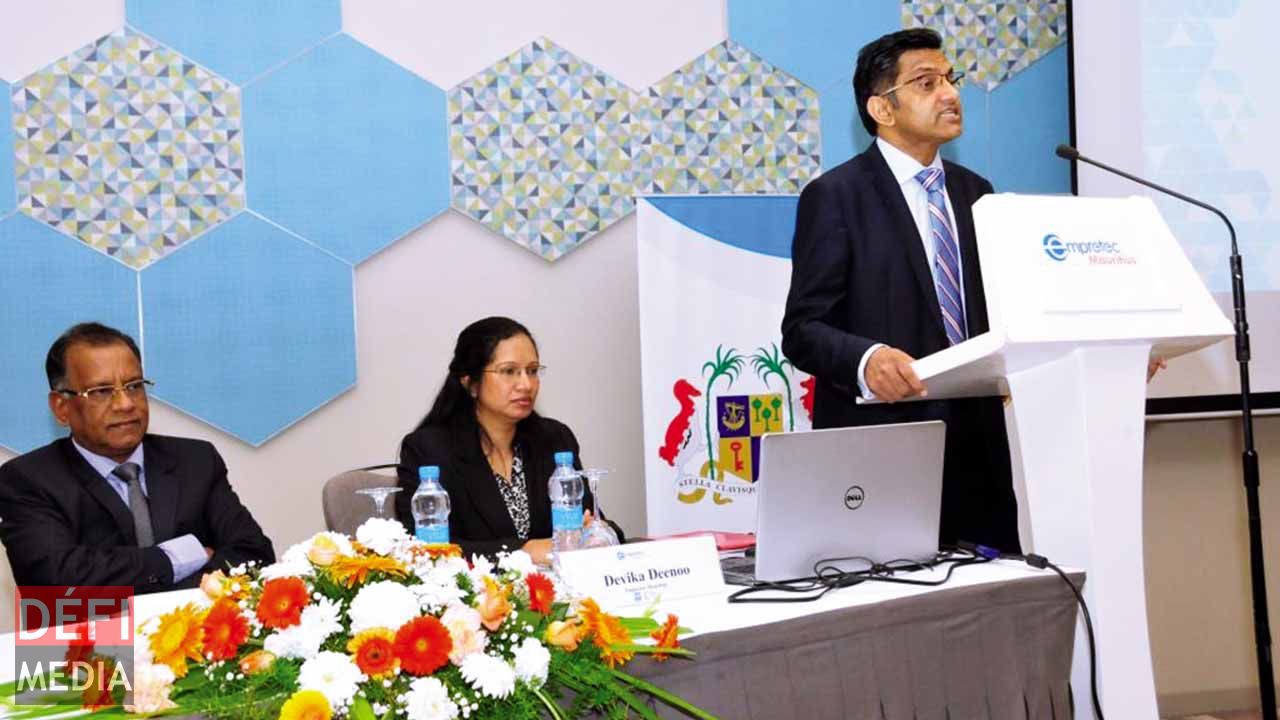
In a bid to foster a wave of modern entrepreneurs, there is a need to have competitive SME across all sectors. Therefore, in this context, a 10-year Master Plan has been suggested. This roadmap is meant to be a game-changer in navigating the new development path for the country’s Small and Medium Enterprises until 2025.
Publicité

SMEs are also required to undergo a thorough transformation. Through a survey conducted in view of the SME Master Plan, it was found that some 47% of all them have a turnover of less than Rs 1 million. Actually, 61% of all local SMEs have a turnover of Rs 2 million or less. These figures have been communicated by the Chief Executive Officer (CEO) of Empretec (Mauritius) Sanjay Mungur. This local private consultancy firm, which was awarded the assignment, has presented the first draft of the Master Plan on Wednesday 23 November at the Hennessy Park Hotel, in Ebène.


The survey also found that 60% of all SMEs employ five or less people. “This means that most SMEs are either operating at an inclusive level or their prospects for growth and job creations are low,” he adds. In the face of new challenges, he points out, whether for industries at large or SME in particular, major structural changes are required in the SME institutional landscape for more coherent, targeted, effective and more importantly, timely support services.

“The ‘one size fits all’ policy measures are no longer adaptable in a changing ecosystem where innovation and competition have become the order of the day, especially if the SME sector is to become the engine of growth and employment creation,” highlights Mr Mungur.
Therefore, the Master Plan proposes a series of initiatives and actions aiming to improve the general ecosystem, which will be beneficial to all SMEs, but more importantly provides targeted measures that support the transformation of others into innovative, more competitive and export ready SMEs. There are also other bold measures for High Growth Potential start-ups to emerge or if they already exist, to develop, as these are the ones which have the potential to take Mauritius to the next level.
The vision will be accomplished through five main objectives which will impact directly on the targets of the Master Plan.
Five Underlying Objectives
- Improve SME competitiveness
- Foster high growth potential SMEs
- Upgrade skills and job opportunities
- Improve value addition
- Increase market share
To achieve these objectives, the pathway is crafted by six strategies thrusts
Six strategies thrusts
- Improving the institutional and regulatory environment
- Instilling entrepreneurial attitude
- Reinforcing human capital and skills development
- Encouraging innovation, technology transfer and green SMEs
- Improving access to finance
- Improving marketing and regional exports capacity
The Master Plan is proposing nine High Impact Initiatives, which consists of 46 Key Actions, 27 Sectoral and 13 Thematic Actions. It also includes Quick Actions which can be implemented fairly rapidly and results can be felt in the short term. According to Sanjay Mungur, the Master Plan is positioned as a Game Changer for Mauritius. One that will favour the competitive transformation of existing SMEs, supports High Growth Potential startups, encourages innovations and even Industry disruptors.
GDP from 40% to 52%
The Master Plan also lays the roadmap for increasing the GDP contribution of SMEs from 40% to 52% in ten years time. “In the spirit of true entrepreneurs, we have to be bold and ambitious,” says Sanjay Mungur.
108,000 SMEs
Present at the workshop, Mr Sunil Bholah, Minister of Business and Cooperatives, points out that generally, SMEs play a key role in most developing countries. “In Mauritius, SMEs are indeed the largest employer. There are more than 108,000 SMEs in Mauritius, which employ about 300,000 people. This represents 54.6% of the total workforce,” he indicates. However, he says, globalisation and trade liberalisation have ushered in new opportunities as well as challenges for SMEs.

According to him, only a small number of SMEs are able to identify and exploit these opportunities and deal with the challenges. “The majority of SMEs in developing countries like Mauritius has been less able or unable to exploit the benefits of globalisation and, to add to the situation, are frequently under pressure on the local or domestic markets from cheaper imports and foreign competition,” he states.
Challenges in the sector are multi-dimensional. As trade barriers and communication costs fall, SMEs are required to add more value to their products to stay ahead and compete with lower cost rivals, says the minister.
“New rules introduced through the multilateral trade system and foreign buyers require SMEs to comply with higher technical, environmental and labor standards in domestic and export markets. Competition within the developing world for export markets, foreign investment and resources is also intensifying,” he says. Given the current state of affairs, says Minister Bholah, unless we introduce a ‘game changer’ in the form of this Master Plan, we will remain stuck in a middle-income and low value-addition trap.
“An innovation-led economy demands a new breed of SMEs that can help foster market and technology-driven innovation to create more high-skilled jobs in all economic sectors and for this to happen, the government imperatively has to adopt a differentiated approach to accelerate the growth of SMEs and to provide the impetus for growth,” says the Minister.

Notre service WhatsApp. Vous êtes témoins d`un événement d`actualité ou d`une scène insolite? Envoyez-nous vos photos ou vidéos sur le 5 259 82 00 !

























![[Info Soirée] : «Se enn moman kot tou la fami dekonekte ar portab ek rezo sosyo»](https://defimedia.info/sites/default/files/styles/square_thumbnail/public/thumbnail_200425.jpg?itok=6Z6bF_6Y)





